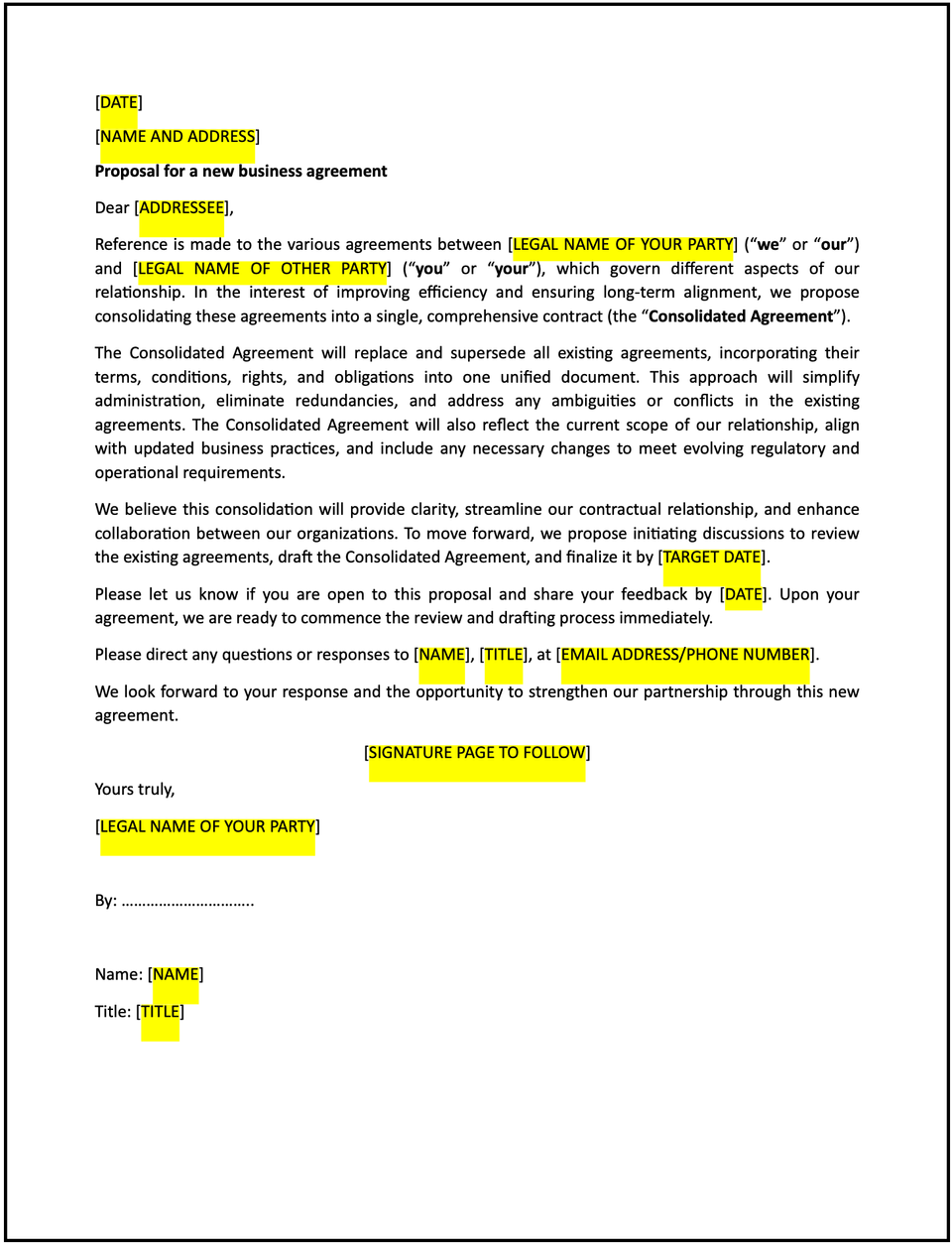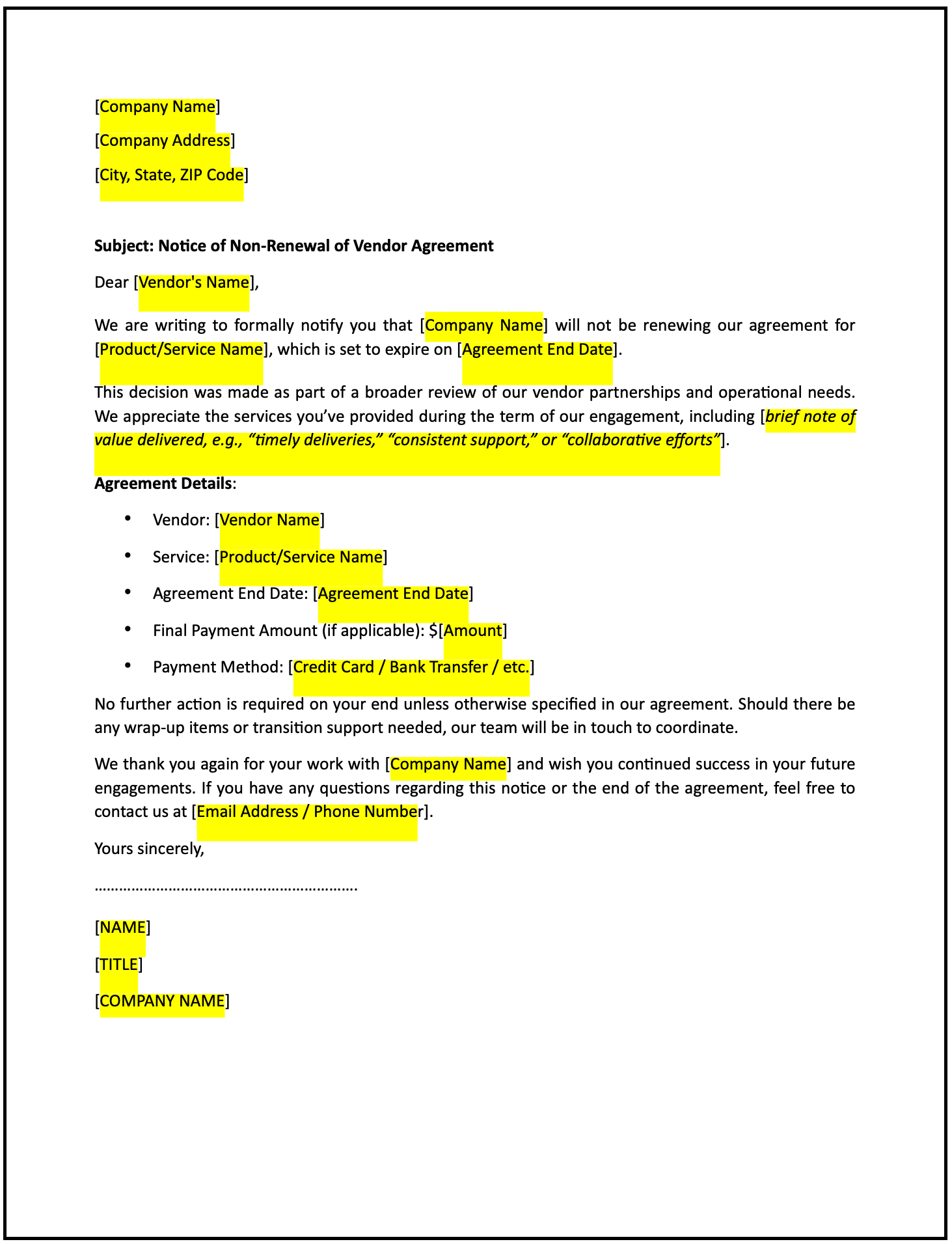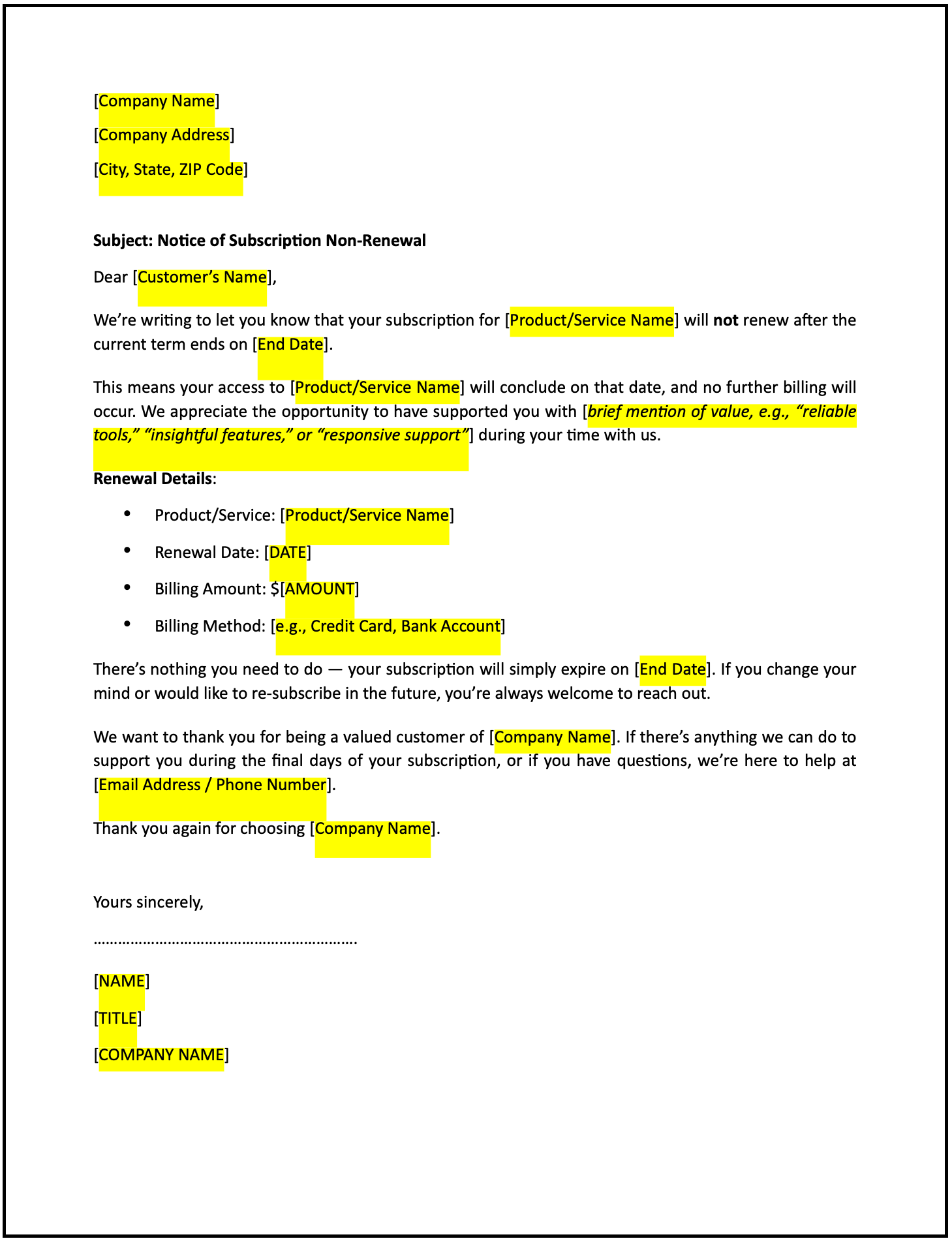Proposal letter to consolidate multiple agreements: Free template

Proposal letter to consolidate multiple agreements
Consolidating multiple agreements into a single contract can simplify management, enhance clarity, and improve operational efficiency. This letter provides a professional way to propose consolidation, outline the rationale, and invite the other party to collaborate on drafting the new agreement.
How to use this proposal letter to consolidate multiple agreements
- Reference existing agreements: Clearly identify the agreements being considered for consolidation, including their titles, reference numbers, and effective dates.
- Propose the consolidation: State your intent to consolidate the agreements into a single contract and briefly outline the benefits.
- Explain the rationale: Provide a concise explanation of why consolidation is beneficial, focusing on mutual advantages such as streamlined management or reduced administrative burden.
- Highlight proposed changes: Summarize any anticipated updates or modifications to the terms as part of the consolidation process.
- Suggest next steps: Propose a meeting, call, or other actions to discuss the proposal and agree on a path forward.
- Maintain a professional tone: Ensure the letter is respectful and collaborative, emphasizing alignment and shared goals.
- Request acknowledgment: Ask the other party to confirm receipt of the letter and provide their feedback or interest in pursuing consolidation.
Benefits of using a proposal letter to consolidate multiple agreements
This letter template provides a structured and professional way to propose the consolidation of agreements while maintaining clarity and collaboration. Here’s how it helps:
- Simplifies management: Consolidating agreements reduces complexity and makes contract oversight more efficient.
- Promotes transparency: Outlining the intent and process fosters trust and alignment between the parties.
- Facilitates negotiations: Proposing consolidation encourages a streamlined discussion of terms and expectations.
- Enhances clarity: Consolidation eliminates potential conflicts or redundancies across multiple agreements.
- Provides documentation: The letter serves as a formal record of the proposal, which can be useful for reference during negotiations.
Tips for writing an effective proposal letter to consolidate multiple agreements
- Be specific: Clearly identify the agreements to be consolidated and the proposed scope of the new contract.
- Focus on mutual benefits: Highlight how consolidation simplifies processes and benefits both parties.
- Use professional language: Maintain a respectful and collaborative tone to foster positive discussions.
- Address potential concerns: Anticipate questions or objections and include explanations to support the proposal.
- Keep it concise: Focus on the key elements of the proposal and avoid unnecessary details or commentary.
Frequently asked questions (FAQs)
Q: What details should I include in this letter?
A: Include the agreements to be consolidated, the rationale for consolidation, and any proposed updates or changes to the terms.
Q: Should I include a draft of the consolidated agreement?
A: While not required, including a draft can clarify the proposal and expedite discussions.
Q: Who typically receives this letter?
Q: Who typically receives this letter?
Q: How formal should this letter be?
A: The tone should be professional and collaborative, reflecting the importance of the proposed consolidation.
Q: When should this letter be sent?
A: Send the letter after preparing the consolidation plan to ensure readiness for discussions.
Q: Can this letter include alternative consolidation options?
A: Yes, offering multiple approaches demonstrates flexibility and can help reach an agreement more efficiently.
Q: Is acknowledgment from the other party required?
A: Yes, acknowledgment is important to confirm receipt and gauge initial interest.
This article contains general legal information and does not contain legal advice. Cobrief is not a law firm or a substitute for an attorney or law firm. The law is complex and changes often. For legal advice, please ask a lawyer.


